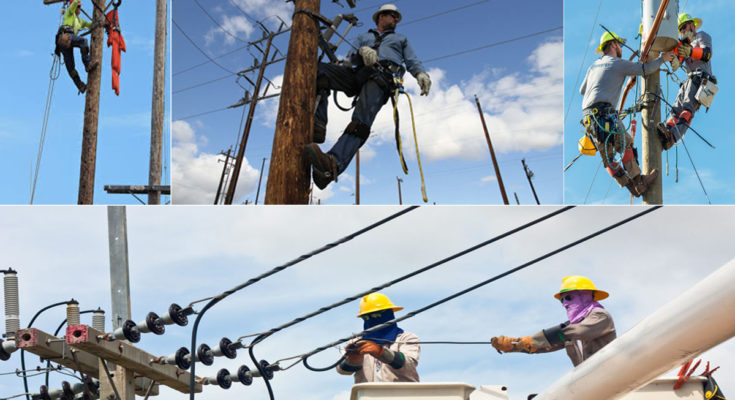The need for lineworkers is growing as those currently in the profession are retiring, the industry is expanding and growing, and strong storms create damage that needs to be repaired. Those looking to enter the field of linework can help advance themselves in this career by attending lineman school.
At the school, they will learn the tools, skills, and theoretical principles needed for the craft before they proceed to an internship. After some time in school, students become apprentices. Apprentices work with an expert licensed lineman who is known as a journeyman to obtain experience and the hours they need to become certified. Once an apprentice becomes a journeyman they will be able to work on jobs without supervision.
Lineman schools across the country offer both housing and financial aid as they work to prepare the next generation for the increasing need for line workers. Potential linemen looking to enter the industry will need to attend one of the many lineman schools available to ensure they will be hired by a company looking to fill an opening.
While choosing a school potential lineman will want to consider the requirements for the area in which they wish to work. Certain areas have specific documents or forms that are required to be certified. There are also benefits offered by certain programs that are not offered by others when it comes to equipment and additional licensing that potential linemen should consider when choosing their school.
Some schools do not offer certifications and only help students with the initial training. Other schools may offer certificates and distinctions that will help students rise quicker within the industry. Once students reach a point in their program where they are working on their apprenticeship hours, they are able to receive wages for the work they put in.
Depending on the school or program potential linemen attend, the wages for these hours vary so it is important that they also check into this part of the program before attending. While the wages of an apprentice do not equal those of a certified lineman or journeyman, apprentices can still use these wages to cover tuition and expenses while they are still being trained.
Other points to consider when evaluating lineman schools are cost and time frame.
The length of the school can range from 7 weeks up to 6 years and costs can range from $350 to over $15,000. For example, Southeast Lineman Training Center in Georgia offers a 15 week course for $15,995. In comparison, other schools offer 3 to 6 year programs starting at $350 per year.
In addition to the price of the program some schools have an extra fee for adding a commercial driver’s license or a CDL, which is often needed to use the equipment required by linemen. Some programs offer personal protective equipment or PPE as a part of the price for the program while others do not so that factor affects the expenses the student must pay while participating in the program.
There are a variety of programs available so the cost, length of the school, certifications, equipment, and other factors must be considered when evaluating and choosing a school. Vocational schools such as Vocational Outside Line Training Academy offer programs, as well as accredited universities like Texas A&M Engineering Extension Service.
To succeed in this field applicants will need to evaluate the many options available and choose the one that best fits their needs, time frame, and budget.





